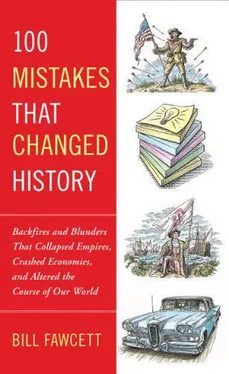Party Time
1776
The revolution by the American colonists was just about over. The revolt had begun with a number of successes. When those victories failed to get the Coercive Acts, stamp tax, quartering of soldiers, and takeover of the courts rescinded by the British Parliament, the cry for rights changed into a demand for independence. But just as the Continental Congress passed the Declaration of Independence in July 1776, the tide turned.
On July 4, the first 10,000 of 30,000 veteran soldiers were carried to New York City by the Royal Navy. These were veteran red-coats who had conquered India, parts of China, a good portion of Africa, and the rest of the British empire. Lord Howe and his experienced regulars quickly won three battles and drove Washington’s army from the colony’s largest and most important city. Washington was driven from New York and then New Jersey. His army was broken and supplies were dwindling. Only the onset of winter forced Howe to go into winter quarters and allowed the rebels to escape to a primitive camp at Valley Forge, Pennsylvania.
Many of the soldiers at Valley Forge had enlisted with Washington after his capture of Boston that last spring. After months of defeat and retreat their morale was beyond poor. Desertion was a problem and hard to prevent. There seemed little risk in deserting a rebel army that was close to total defeat. The risk of staying with it and being punished by the victorious crown seemed a greater threat.
No one wanted to back a loser. The financiers of the revolution risked retaliation that included loss of their wealth and even hanging. The price was too high when defeat seemed all but certain. So the revolution’s finances and credit were disappearing. The soldiers at Valley Forge were short everything from food to clothing.
The British, warm and comfortable in the nearby cities, expected there would not even be any more fighting. By the spring, what little remained of the colonial army was expected to dissolve. They were almost right. That might well have been the case if one of their most experienced officers had not handed the colonials a victory that restored their morale and changed the entire face of the war.
In 1776, there was no group more hated than the Hessian regiments. They were used to foraging, which meant taking what they needed, as was typical in European wars. The German soldiers spoke little English. Not being able to communicate, they had little sympathy for the “rebels” and often didn’t bother to determine whether someone was a royalist or a rebel before treating them badly. The Hessians are today often called “mercenaries,” but in reality they were from Hanover and so was the king of England, George III. They were German, not British, and they were not well paid. They were working under their own sovereign as well. So they were not true mercenaries.
Washington needed a victory, but no one in that time fought in the dead of winter. But right across the river were garrisons of the hated Hessian soldiers in their winter quarters. A victory over them would be doubly effective. Today we have often heard about how Washington crossed the Delaware River amid the ice floes and surprised the Hessians, and in hindsight it seemed as if the conclusion was foregone. This is very, very far from the truth.
Actually the plan called for two groups of rebel soldiers to attack across the river. The other failed to make the crossing at all. And the success of Washington’s attack was far from guaranteed. He led 2,400 men, some poorly armed and partially trained, against nearly 1,500 crack troops who would be on the defensive.

The rebels’ only edge would be surprise. To ensure they had this, the river crossing was done in darkness. The problem was that the same darkness and fierce cold that hid them also slowed the crossing. Instead of arriving at Trenton to attack at sunrise on December 26, 1776, the Americans were still marching toward the Hessians. Not all of the local people were rebels. In fact, at this point many were still loyal to the crown. As the army marched down the road toward Trenton in the very early-morning hours, a loyalist farmer realized who they were and hurried off to warn the Hessian commander, Colonel Johann Rall.
The farmer got as far as the colonel’s door. There a guard stopped him and would not budge. Tradition says the colonel was deep into a game of either chess or cards and had left orders not to be disturbed. The farmer hurriedly scrawled a note to Colonel Rall. The note reached the colonel, but was in English. Rather than trying to summon a translator that early and leave his game, the colonel put the warning note, unread, into his pocket. From that point on victory was inevitable. Washington’s 2,400 rebels surprised the Hessians, many of whom were asleep and mostly hungover or still drunk from the prior night’s Christmas celebrations. For the loss of four wounded and no one killed, Washington’s army killed 22 Hessians, wounded 94, and captured almost 1,000; the remaining 400 German soldiers scattered into the countryside. Just as important, Washington captured the food, clothing, and supplies of a well-equipped British regiment.
Had Colonel Rall bothered to read the farmer’s note there is a high probability that the well-trained Hessians would have thrown back any rebel attack. Another defeat, combined with the ending of many of his men’s enlistments, would have broken Washington’s army. The Revolutionary War would have ended with a victory for Lord Howe, and today America might still be a British colony. The world would have been turned upside down.
41. FINANCED HIS OWN WORST NIGHTMARE
Did unto Others
1776
There are few records of someone in such a position of power that he managed, by his own decisions, to destroy himself and end a 1,000-year-old dynasty. This feat was accomplished by Louis XVI of France. Louis had taken the throne in 1774 and inherited his nation’s antipathy toward Britain. His father, Louis XV, in 1771 had managed to reduce the power of France’s parliament until it was nothing more than an advisory body. When the American colonies revolted, this seemed a good chance for France to hurt Britain at no risk to itself. Over the next five years, France sent aide and soldiers to assist the American colonists. This may well have made all the difference: The French fleet holding the bay outside Yorktown in 1881 ensured Cornwallis had to surrender and guaranteed American independence.
Louis XVI’s American intervention was a foreign policy coup that greatly discomforted the British. But in the long run, it did more harm to his own monarchy. Supporting the American war was very expensive. It virtually bankrupted the royal treasury. This, in turn, meant that the French financial system had to be modernized and taxation changed so that the losses could be replaced. A specially summoned session of the Assembly of Notables was called to approve the changes. They refused to do so. This left the French king with only one more place to turn for approval of his financial plan. This was to summon the Estates General, the grand parliament with representatives from every level of French society. That was where his encouragement of the American Revolution and its popularity in France once more turned on the king who made it successful.
To justify their independence, the American rebels had to make the point that the rights of men were more important than the prerogatives of any monarch. The Americans meant the will of George III of Britain, but the ideas also took root among the intellectuals of France. When the Americans won, again with Louis XVI’s help, the writings of such men as Paine and Adams were reflected in those of Rousseau and the leading minds of Paris.
Читать дальше













